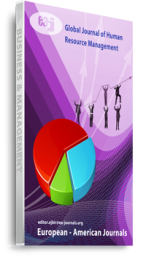The processes of recruitment and selection serve as essential components of human resource management, profoundly impacting organisational performance and strategic results. This research investigates the significance of proficient recruitment and selection methodologies in improving organisational performance within the Federal Inland Revenue Service (FIRS), a pivotal revenue-generating entity in Nigeria. The study employs a qualitative framework, utilising secondary data collection methods to extract insights from official reports, scholarly literature, policy documents, and institutional data. The findings indicate that while FIRS has established formal recruitment frameworks designed to enhance merit, transparency, and professionalism, it still faces challenges including political interference, skill mismatches, insufficient technological utilisation, and bureaucratic delays that impede optimal outcomes. The research elucidates a significant correlation between strategic recruitment methodologies and organisational efficacy, especially concerning employee productivity, service provision, and public confidence. The study is grounded in the Human Capital Theory and the Resource-Based View, both of which highlight the essential importance of skilled human resources in attaining competitive advantage. The analysis advocates for enhanced investment in recruitment technology, more rigorous enforcement of meritocratic policies, ongoing development of HR capabilities, and strategic planning for the workforce. These measures are crucial for cultivating a skilled workforce that can effectively promote the institutional objectives of FIRS and enhance the performance of the public sector in Nigeria.
Keywords: Human Resource Management, Organizational Performance, Public Sector, Recruitment, Selection

